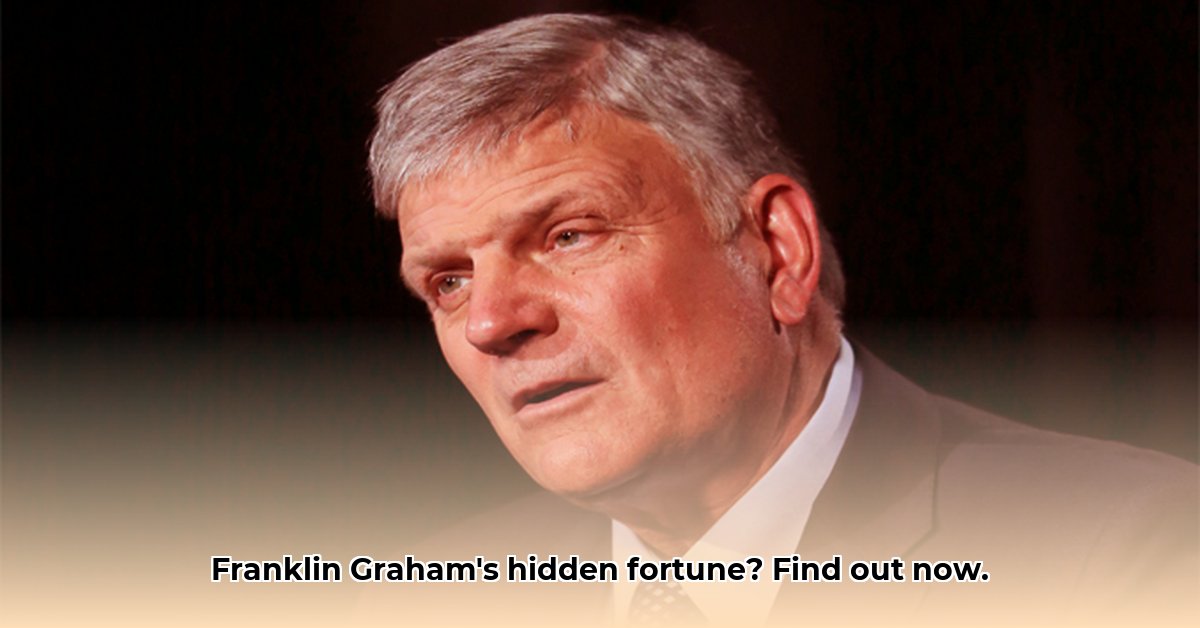
The Complexities of Wealth in Religious Leadership
The vast disparity between the average clergy salary and the wealth accumulated by some prominent religious figures, like Franklin Graham, raises important ethical questions. This article explores the challenges of determining Franklin Graham's net worth, examines the financial practices of his organizations, and delves into the broader debate surrounding the "Prosperity Gospel" and financial transparency in religious leadership. How much does he truly possess, and what are the implications of his wealth? For comparison, see this analysis of another leader's finances: David Jeremiah's Net Worth.
Franklin Graham: A Biographical Overview
Franklin Graham, son of renowned evangelist Billy Graham, leads both Samaritan's Purse, a global relief organization known for its disaster response, and the Billy Graham Evangelical Association, dedicated to worldwide evangelism. His ministry involves extensive international travel, high-profile engagements with world leaders, and significant influence within the evangelical community. This extensive reach naturally contributes to the considerable financial resources managed by his organizations.
Unpacking the Finances: A Quest for Transparency
Precisely determining Franklin Graham's net worth proves exceedingly difficult. Unlike publicly traded companies, religious organizations often aren't obligated to disclose detailed financial information, including individual leader compensation. While his organizations' revenue streams – primarily donations, book sales, and speaking engagements – are known, the precise allocation of these funds remains largely opaque. Tax filings offer some insight into overall revenue and expenditures, but these documents rarely break down individual salaries or personal assets. This lack of transparency fuels both curiosity and legitimate concerns about accountability. How can donors ensure their contributions are directed efficiently and ethically without more detailed financial reporting?
Transparency and Accountability: Scrutiny and the Public Trust
The absence of comprehensive financial disclosures surrounding Franklin Graham's personal wealth has understandably generated public scrutiny. While Samaritan's Purse and the Billy Graham Evangelical Association release annual financial statements, these often lack the granular detail needed to fully understand how funds are utilized and how individual compensation is structured. The absence of such detail raises concerns about potential conflicts of interest and the efficient use of donated funds. Independent audits, while valuable tools, often don't fully address the public's desire for complete transparency regarding the personal finances of high-profile religious leaders.
Ethical Considerations: The Prosperity Gospel and Its Critics
The discussion surrounding Graham's wealth is inextricably linked to the "Prosperity Gospel," a theological viewpoint connecting material success with faith. Critics argue that this doctrine can misrepresent the true message of Christianity, potentially exploiting vulnerable individuals. Concerns are raised that it might create an unhealthy emphasis on financial well-being, potentially overshadowing acts of compassion and service. Conversely, supporters posit that the Prosperity Gospel encourages responsible financial stewardship and generosity, emphasizing the importance of hard work as a reflection of faith. This fundamental disagreement highlights the ethical complexity surrounding wealth in religious leadership. Does significant wealth among religious leaders align with the core tenets of their faith?
A Comparative Perspective: Income Disparities in Religious Leadership
Comparing Franklin Graham's financial situation to other prominent religious leaders provides crucial context. Some leaders adopt austere lifestyles characterized by simplicity and humility, while others manage large organizations with substantial financial resources. This range of practices illustrates the diversity of approaches to financial management within religious circles. This diversity underscores the need for a comprehensive, nuanced conversation surrounding financial transparency and the ethical implications of wealth among religious leaders. Is the disparity merely a reflection of differing organizational scales or theological perspectives, or does it also represent potential imbalances in accountability and stewardship?
Conclusion: The Urgent Need for Transparency
Accurately determining Franklin Graham's net worth remains challenging due to the inherent limitations of transparency in the financial practices of many religious organizations. However, the lack of clear, accessible financial information raises significant questions regarding accountability and ethical stewardship. A robust discussion about financial transparency, including independent audits and clearer reporting practices, is crucial to building trust and fostering confidence in the responsible use of donated funds. This conversation is pivotal for ensuring integrity within religious organizations of all sizes and protecting the vulnerable from potentially exploitative doctrines. Further investigation and open dialogue are essential to navigating this complex and sensitive topic.